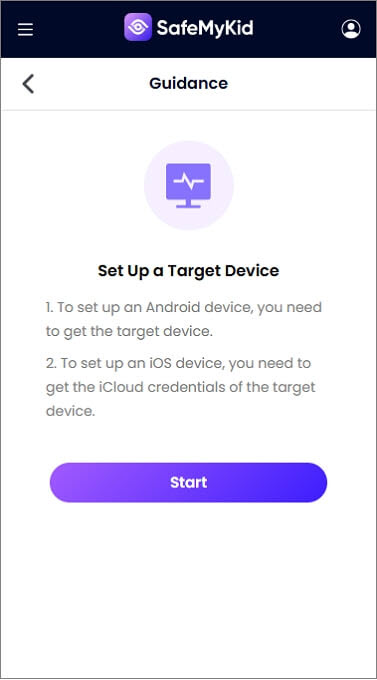If Husband Cheats: What to Do- 6 Essential Approaches to Consider

Determining "if husband cheats, what to do" creates one of the most emotionally challenging situations a wife can face, requiring careful consideration of various approaches that balance emotional healing, practical decision-making, and potential relationship recovery.

Modern relationship experts offer evidence-based guidance for navigating the aftermath, providing structured approaches that help women move forward with clarity regardless of whether they choose reconciliation or separation.
Understanding Your Options When Your Husband Cheats
Before making decisions about what to do if your husband cheats on you, understanding the full range of available responses creates a foundation for moving forward with intention rather than pure emotion.
- Acknowledge the Emotional Impact
- Take Time Before Making Major Decisions
- Know the Recovery Possibilities
- Weigh Your Options Carefully
When infidelity is uncovered, it's normal to feel shock, anger, grief, and confusion. These emotions can cloud judgment during a critical time, so it's essential to allow space to process.
Relationship experts strongly advise against making immediate decisions. A "cooling-off" period gives you time to gather facts, seek support, and gain emotional clarity.
Surprisingly, 60-75% of marriages survive infidelity with the right intervention. However, rebuilding trust often takes 1-2 years of focused effort and, in many cases, professional counseling.
Whether you choose reconciliation or separation, knowing the full range of responses empowers you to move forward with purpose——guided by insight, not just emotion.
SafeMyKid: The Ultimate tool for Detecting Husband's Cheating

When facing uncertainty about infidelity, many women need concrete evidence to make informed decisions. If you're wondering what to do if your husband cheats on you, SafeMyKid offers the most comprehensive solution specifically designed for detecting cheating husbands.
SafeMyKid provides advanced monitoring capabilities created specifically for wives dealing with infidelity concerns. It works completely invisibly and offers undetectable access to all digital activities, allowing you to gather definitive proof of affairs or verify faithfulness during reconciliation.
Whether you need evidence before confrontation or verification that cheating has truly ended, SafeMyKid delivers the most complete husband monitoring solution with features specifically optimized for catching infidelity in all its forms.
Key Features That Make SafeMyKid Perfect for Catching Cheating Husbands:
When facing uncertainty about what to do if a husband cheats on you, SafeMyKid offers these specialized infidelity detection capabilities:
Secret Conversation Access - View all hidden chats and deleted messages across dating apps, social media, and messaging platforms where affairs develop.
GPS Location Tracking - Monitor real-time location and movement history to catch hotel visits, unexplained stops, and meetings with affair partners.
Affair Contact Identification - Identify suspicious contacts, saved under fake names or recently added during the affair period.
Dating App Detection - Discover hidden dating applications and complete chat histories even when deleted from the phone.
Deleted Evidence Recovery - Access deleted photos, messages, and browsing history that cheating husbands typically erase to hide affairs.
100% Undetectable Monitoring - Gather evidence completely invisibly without alerting your husband to the investigation.
How to Use SafeMyKid to Catch a Cheating Husband
When deciding "what to do if husband cheats", SafeMyKid provides the definitive evidence you need to confront infidelity with confidence.
Here's how to start gathering proof immediately:
Step 1. Create Your Private Monitoring Account
Visit the SafeMyKid website and register for a confidential account using a private email address your husband can't access.

Step 2. Set up SafeMyKid App with The Guidance
For iPhone Users: Access begins by logging into the target's iCloud account——no physical access or app installation required.
For Android Devices: Install the SafeMyKid app directly on the target phone. Once set up, enable stealth mode to keep the app hidden from view, ensuring invisible operation at all times.

Step 3. Gather Proof of Affairs to Catch a Cheating Husband
Access your secure evidence dashboard to capture screenshots of affairs, track secret meetup locations, identify hidden dating profiles, and collect all the proof you need to confront his infidelity with irrefutable evidence.

5 Other Approaches to Consider When Your Husband Has Cheated

When faced with the devastating discovery of infidelity, these five approaches provide structured guidance for what to do if your husband cheats, each offering different pathways depending on your specific circumstances and relationship dynamics.
1. Emotional Recovery Focus Approach
The emotional recovery approach prioritizes personal healing and emotional stabilization as the essential first step before making permanent decisions about the relationship's future.
This method recognizes that infidelity creates profound trauma responses, including shock, grief, anger, and disorientation, that require attention before clear decision-making becomes possible.
Key Components of Emotional Recovery:
- Establish emotional safety through temporary separation or clear boundaries
- Work with a therapist specializing in betrayal trauma
- Develop self-care practices that stabilize emotional reactions
- Create support systems through trusted friends or support groups
- Process grief and anger in constructive, non-destructive ways
- Postpone permanent decisions until emotional stability improves
Limitations:
- May extend the period of relationship uncertainty while emotional processing occurs
- Requires financial resources for professional therapeutic support
- Can be misinterpreted by the unfaithful partner as forgiveness rather than processing
- Typically requires 3-6 months before clarity emerges about relationship decisions
- Success depends heavily on finding qualified trauma specialists
2. Value-Based Decision Approach
When considering "what to do if husband cheats in Islam" or from any ethical framework, a value-based approach helps align decisions with your core beliefs and principles rather than reacting purely from emotion.
This method involves examining the situation through the lens of your most important personal values, whether they come from spiritual traditions, family upbringing, or individually developed ethical frameworks.
Essential Value-Based Elements:
- Identifying your core values regarding marriage, commitment, and forgiveness
- Consulting with trusted mentors who understand your value system
- Considering how different decisions align with your authentic principles
- Evaluating whether the relationship can be restored to reflect shared values
- Implementing values-based boundaries during the decision process
- Seeking guidance from respected sources within your belief system
Limitations:
- Requires clarity about personal values that may be challenging during emotional turmoil
- Potential conflict between different values within your belief system
- May create tension when partners have divergent value frameworks
- Finding qualified advisors who respect your values without imposing their own
- Balancing principled approaches with practical realities
3. Evidence-Based Therapeutic Approach
When considering what to do if my husband cheats on me, research-validated couples therapy offers a structured approach to infidelity recovery with the highest success rates for relationships that meet specific viability criteria.
This method applies clinically proven therapeutic protocols specifically designed for infidelity recovery, typically requiring both partners' participation and commitment to a multi-month process.
Critical Therapy Components:
- Assessment of relationship viability and contraindications for reconciliation
- Structured disclosure process that prevents harmful trickle-truth patterns
- Establishment of non-negotiable boundaries and transparency measures
- Specific communication protocols that reduce defensive responses
- Identification and resolution of relationship vulnerabilities that contributed to infidelity
- Rebuilding trust through consistent behavioral changes rather than promises
Limitations:
- Requires willing participation and commitment from both spouses
- Involves a substantial financial investment for specialized therapy
- Demands a significant time commitment over many months
- Success depends heavily on the therapist's expertise in infidelity treatment
- Not appropriate in situations involving ongoing affairs, abuse, or narcissistic personality patterns
4. Legal Protection Approach
A pragmatic method focuses on what to do if a husband cheats from a legal and financial protection perspective, regardless of whether reconciliation or divorce is the ultimate outcome.
This approach prioritizes practical protections while emotional and relationship decisions evolve, ensuring that women maintain financial security and legal rights throughout the process.
Essential Legal Protection Elements:
- Consultation with a family law attorney to understand options without filing
- Documentation of assets, accounts, and financial status quo
- Protection of credit and access to emergency funds
- Understanding of legal implications for different separation scenarios
- Preservation of evidence is relevant to potential legal proceedings
- Development of co-parenting frameworks if children are involved
Limitations:
- May create additional relationship tension if discovered by the husband
- Requires financial resources for legal consultation
- Can shift emotional focus toward adversarial positioning
- Varies significantly based on jurisdiction and applicable laws
- May conflict with reconciliation efforts if approached aggressively
5. Personal Growth Approach
For those wondering what to do if a wife cheats on a husband or vice versa, the personal growth approach focuses on using the crisis as a catalyst for individual development, regardless of the relationship's ultimate outcome.
This method views infidelity as an opportunity to develop greater self-awareness, emotional resilience, and personal strength while clarifying core values and relationship needs.
Personal Growth Components:
- Individual therapy focused on personal development rather than just crisis management
- Exploration of codependency patterns and boundary development
- Enhancement of emotional intelligence and communication skills
- Development of greater self-reliance and independence
- Cultivation of a stronger support network beyond the marriage
- Identification of personal growth goals independent of relationship outcome
Limitations:
- May appear to minimize the wrongdoing of the unfaithful partner
- Requires significant self-reflection during an emotionally turbulent time
- Benefits emerge slowly compared to more action-oriented approaches
- Can be misinterpreted as accepting responsibility for a partner's infidelity
- Requires qualified therapeutic support for optimal outcomes
Understanding The Impact of Husband Cheating on Mental Health of The Wife
When addressing what to do if a wife cheats on her husband, understanding the psychological impact becomes crucial, as both betrayed and unfaithful spouses experience significant mental health challenges during this crisis.
Research consistently demonstrates that discovering infidelity triggers trauma responses in 70% of betrayed spouses, with many exhibiting symptoms that meet clinical criteria for Post-Traumatic Stress Disorder (PTSD), including intrusive thoughts, hypervigilance, emotional numbing, and sleep disturbances.
These trauma responses often impair decision-making abilities precisely when critical choices must be made, creating a challenging dynamic where significant life decisions must be considered while experiencing cognitive and emotional disruption.
Common psychological impacts include:
- Anxiety disorders (affecting 60-75% of betrayed spouses)
- Depression symptoms (reported by 65% of those experiencing infidelity)
- Identity disruption and decreased self-worth
- Trust impairment extending beyond the relationship
- Increased risk of substance use as a coping mechanism
Recovering from Husband's Cheating Stress: Is Reconciliation Possible?
When determining "if husband cheats, what to do", many women question whether genuine relationship recovery is possible or whether trust can ever be fully restored after such a profound betrayal.
Research provides valuable insights into the factors that influence reconciliation success rates:
Factors That Support Successful Reconciliation:
- The unfaithful partner takes full responsibility without blame-shifting
- Complete disclosure occurs early rather than discovering details over time
- The affair has definitively ended with no continued contact
- Both partners commit to professional counseling specifically for infidelity
- The relationship had significant strengths and connections before the infidelity
- Both partners demonstrate a willingness to examine relationship patterns
- The unfaithful spouse demonstrates consistent transparency and behavioral change
Contraindications for Reconciliation:
- History of multiple affairs or a pattern of deception
- Presence of addiction, abuse, or untreated mental health issues
- Fundamental incompatibility or long-term dissatisfaction predating the affair
- Refusal of the unfaithful partner to end the affair completely
- Unwillingness to participate in therapeutic recovery work
- Absence of genuine remorse beyond being sorry for getting caught
This research helps women make informed decisions about reconciliation potential based on specific relationship factors rather than general statistics alone.
Frequently Asked Questions about What to Do If Your Husband Cheats
Here are concise answers to common questions about responding to infidelity:
1. Should I immediately file for divorce if my husband cheats?
Most experts recommend against immediate decisions while in the initial trauma phase. Consider a 3-6 month structured separation with professional support before making permanent choices. Decisions made within 4-8 weeks are often later regretted, regardless of outcome.
2. How can I verify if my husband has truly ended the affair?
When determining what to do if your husband cheats on you, verification is essential. Implement transparency agreements, including device access, have a professional disclosure process, document contact termination with the affair partner, and use verification tools during trust rebuilding.
4. How should I tell family and friends about my husband cheating?
Research suggests that selective disclosure to 2-3 trusted individuals provides optimal support while minimizing complications if you reconcile. Avoid broad announcements, select supporters who respect your decisions, consider long-term implications, and establish clear sharing boundaries.
5. Will I ever stop feeling the pain of my husband's infidelity?
Studies show acute emotional pain typically diminishes within 6-12 months with proper support. For couples successfully reconciling with therapy, about 70% report that the infidelity eventually occupies a different emotional space that doesn't trigger acute pain or dominate the relationship.
Conclusion
Determining "if husband cheats, what to do" in Islam or from any other religious, cultural, or personal perspective requires balancing immediate emotional needs with thoughtful long-term decision-making.
The discovery of infidelity creates profound disruption that affects every aspect of life, from emotional stability to practical considerations about family, finances, and future relationship potential.



